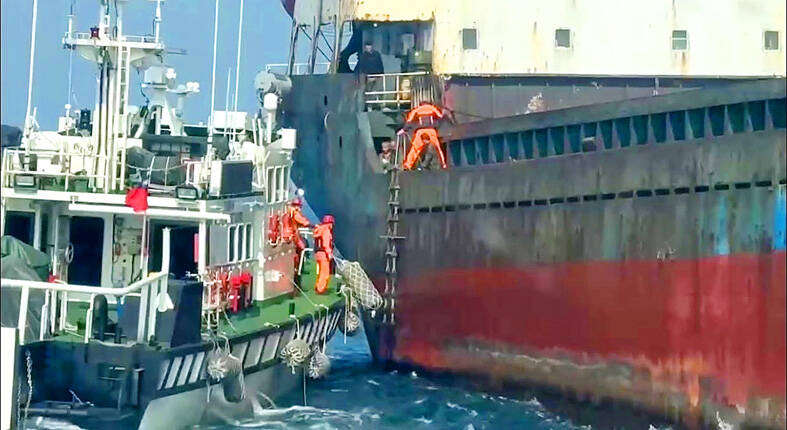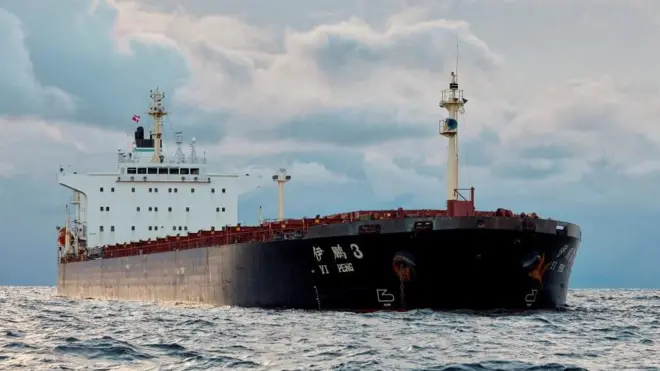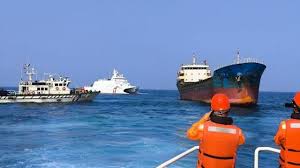Tainan, Taiwan – 12 June 2025: In a landmark legal case, a Taiwanese court sentenced a Chinese national to three years in prison for damaging a critical undersea internet cable in the Taiwan Strait, marking the first time such sabotage has resulted in criminal conviction in the region.
The convict, known only by his surname Wang, was captain of the Hong Tai 58, a Togolese-flagged vessel that severed a domestic cable linking Taiwan’s main island to the outlying Penghu islands. The Tainan District Court concluded that the act posed “enormous risk” to government operations and civilian life.
Undersea Cable Damage: A Digital Lifeline Severed
Undersea cables are vital infrastructure, carrying more than 95% of the world’s internet and communications data. Taiwan relies on 24 such cables—10 domestic and 14 international—for its connectivity and national security.

The court ruling stressed the strategic sensitivity of the damaged line, noting the cable’s role in linking Penghu’s infrastructure to central Taiwan. “The impact is enormous,” the court wrote. “The defendant’s actions should be severely condemned.”
On 25 February 2025, the Hong Tai 58 was spotted by Taiwan’s coast guard loitering off the southern coast for days. Despite repeated radio warnings, the ship remained in the restricted area. Just minutes after the vessel departed, a key undersea cable was found severed. Taiwan’s authorities immediately launched an investigation and escorted the vessel back for forensic analysis.
Court Finds Evidence of Deliberate Sabotage
Although Mr. Wang initially denied any wrongdoing, he later told the court he “might have broken the cable,” blaming rough sea conditions and claiming ignorance about the presence of undersea infrastructure. He had no legal counsel during the trial.
Prosecutors, however, argued the sabotage was intentional. Key evidence included:
- Electronic charts on the vessel showing exact cable locations
- A suspicious zigzag sailing pattern traced across the cable zone
- Anchor drag marks that matched the damaged cable’s location
Prosecutor Hsu Shu Han told BBC Chinese in May that the ship had only one recorded cargo movement in the past year, had changed names several times, and was poorly maintained. “It was highly suspicious,” he said.
Strategic Sabotage or Maritime Accident?

The case feeds into Taiwan’s broader narrative of defending itself against “grey zone” tactics—covert, non-military provocations short of outright war—allegedly employed by Beijing. These include cyberattacks, disinformation campaigns, and now, infrastructure sabotage.
Beijing has consistently denied any involvement in the undersea cable incidents, dismissing them as “common maritime accidents exaggerated by Taiwan.” However, Taiwan’s government maintains that between 2019 and 2023, at least 36 cable damage cases were due to “external forces.”
This verdict comes just months after a similar incident in January, when Taiwan accused another Chinese-owned ship of damaging an undersea cable near the northern coast. That ship’s owners denied wrongdoing, according to Reuters.
Rising Tensions in the Taiwan Strait
Political tensions between China and Taiwan have intensified in recent months. Taiwanese President William Lai has taken a firm stance, labeling China a “foreign hostile force.” China, in response, has increased military drills simulating blockades around the island.
Last November, a Chinese vessel was also accused of severing fiber-optic cables in the Baltic Sea, affecting Sweden and Estonia. Although Sweden’s initial investigation was inconclusive, the incident heightened global awareness of undersea cable vulnerability.
Experts Warn of New Digital Warfare Front
Herming Chiueh, Taiwan’s Deputy Minister of Digital Affairs, warned: “Some scholars say World War III could begin with the cutting of undersea cables. I think that’s quite realistic.”
He added that Taiwan’s digital defenses have been updated to ensure timely detection and rapid response to threats against critical infrastructure. “This is not just an issue of bandwidth—it’s a matter of national security,” he said.
Conclusion: A Signal to the World

The sentencing of Mr. Wang may not conclusively prove state-sponsored sabotage, but it sends a powerful message that Taiwan intends to defend its digital sovereignty. As tensions escalate in the Taiwan Strait, submarine cables—once considered passive technology—are now emerging as frontline targets in a new era of geopolitical confrontation.









